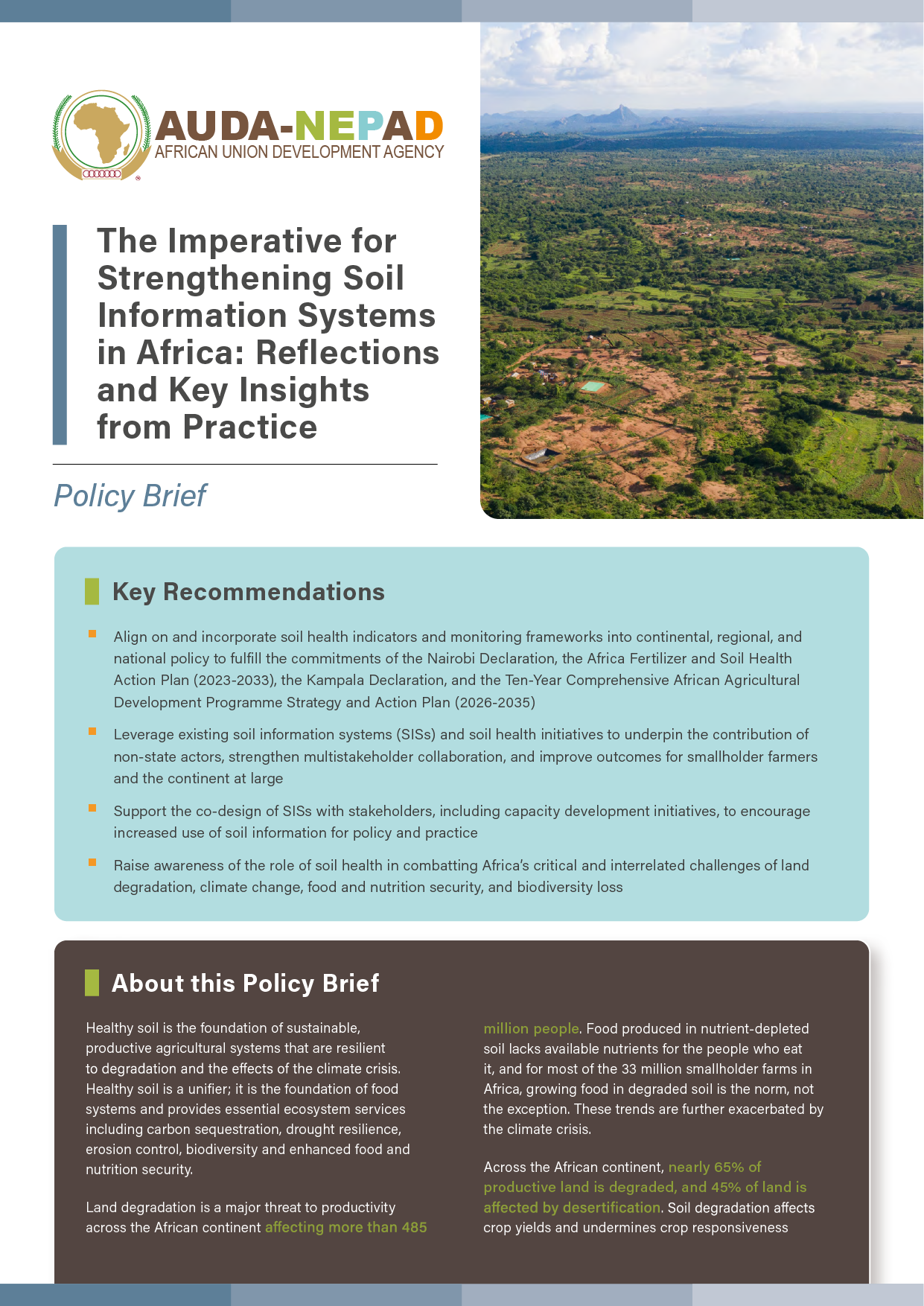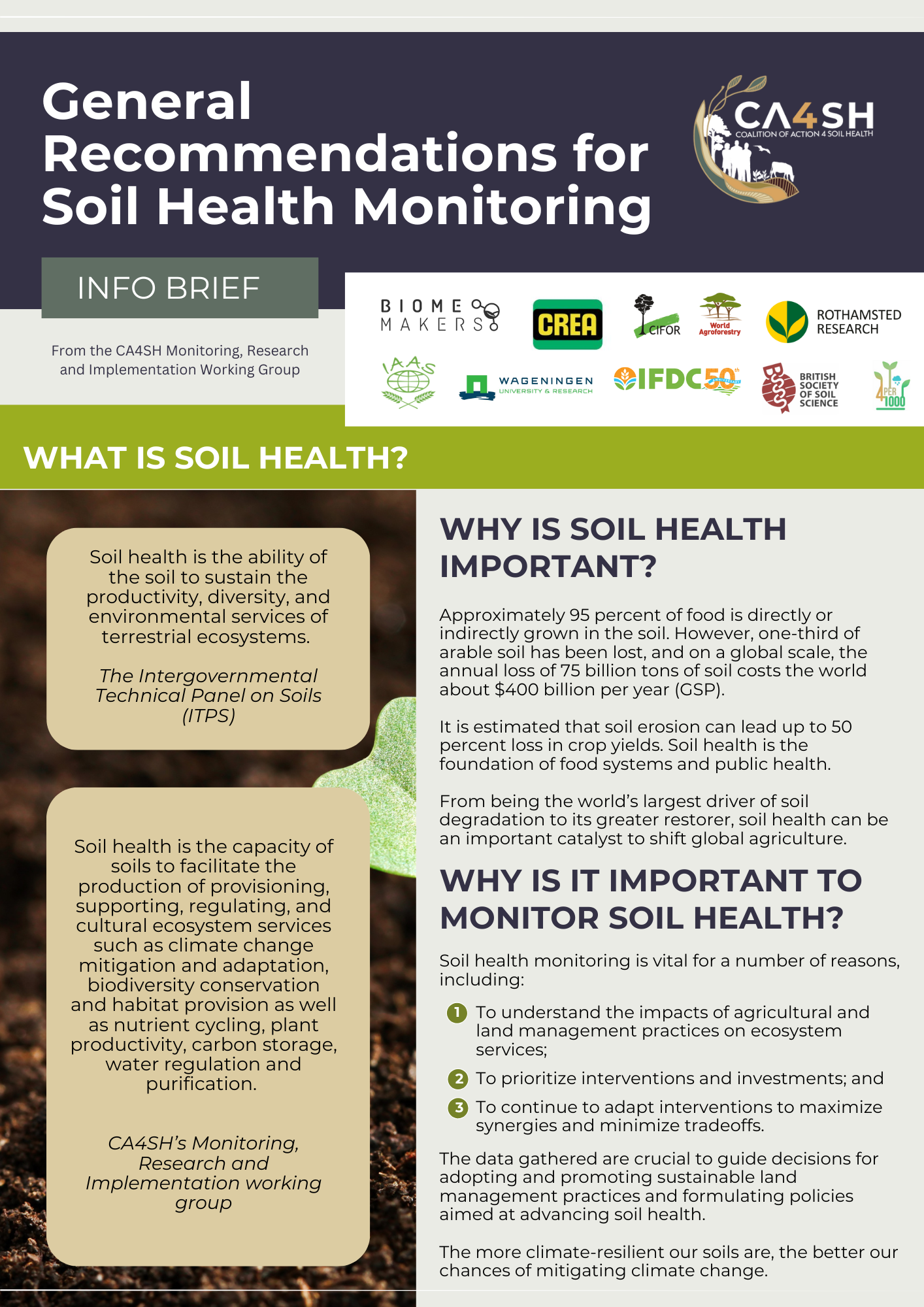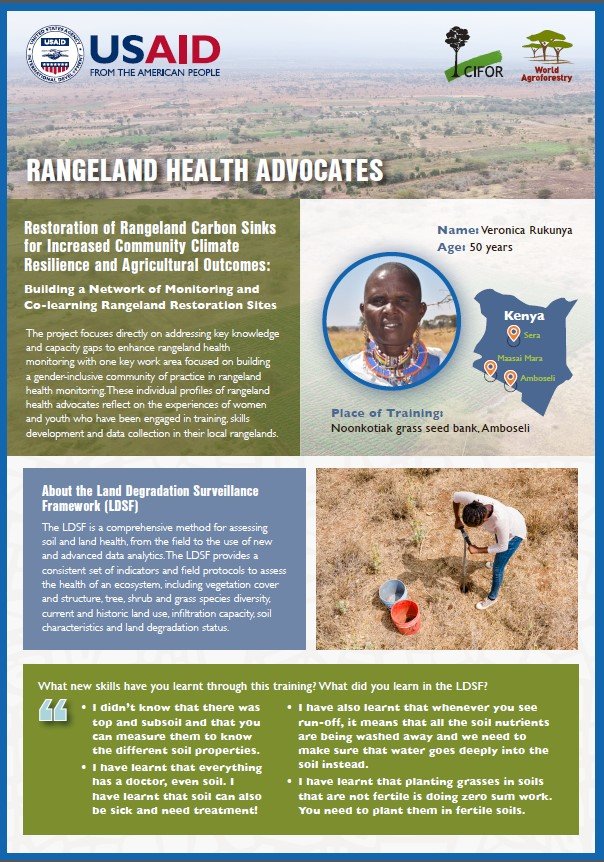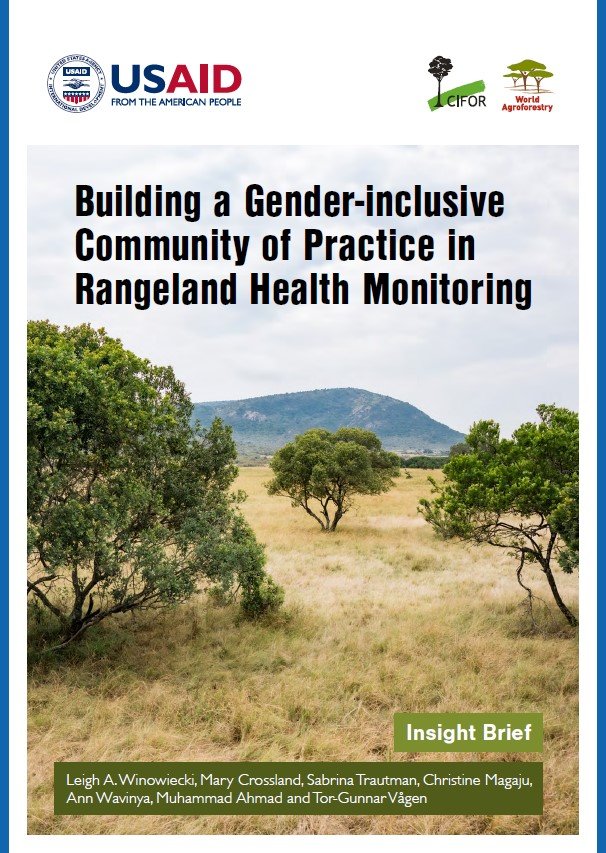Resource Library
Feature Resource:

Insight Brief: The Imperative for Strengthening Soil Information Systems in Africa: Reflections and Key Insights from Practice
African Heads of State and Government formally adopted the Africa Fertilizer and Soil Health (AFSH) Summit Declaration, also known as the Nairobi Declaration, during the AFSH Summit. The AFSH Summit addressed the urgent need to improve soil health and enhance fertilizer utilization across the continent to boost agricultural productivity and alleviate hunger and poverty. These priorities were initially identified in the 2006 Abuja Declaration on Fertilizer for the African Green Revolution.
Furthermore, the 2014 Malabo Declaration under the Comprehensive Africa Agriculture Development Program (CAADP) reaffirmed AU Member States' commitment to inclusive agricultural transformation, building on earlier initiatives such as the 2003 Maputo Declaration on CAADP and the 2004 Sirte Declaration on sustainable agriculture and water management. Despite these commitments, AU Member States have faced significant challenges in implementing the objectives outlined in these declarations.

The Imperative for Strengthening Soil Information Systems in Africa: Reflections and Key Insights from Practice
Only through collaborative, cohesive soil health monitoring efforts can AU Member States ensure that interventions are based on evidence to maximize impact. For example, such a monitoring framework can be used to prioritize, track and adapt locally revelant interventions. In turn these data can be used to inform policy and financial investments. This policy brief outlines the case for African policymakers to scale soil information systems (SISs) and integrate them into continental, regional and national policy frameworks.

Guidance Note - Advancing Africa's Soil Health Monitoring to Support the Nairobi Declaration and CAADP Kampala Agenda
To reverse Africa's interrelated challenges of land degradation, climate change, food security and biodiversity loss, African Union (AU) Member States will need to markedly increase the health of their soils and invest in soil restoration that is targeted and based on scientific evidence.

General Recommendations for Soil Health Monitoring
The CA4SH Monitoring, Research and Implementation have compiled expert advice and considerations for those looking to monitor soil health.

Advocate Briefs: Restoration of Rangeland Carbon Sinks for Increased Community Climate Resilience and Agricultural Outcomes
The Restoration of Rangeland Carbon Sinks focuses directly on addressing key knowledge and capacity gaps to enhance rangeland health monitoring with one key work area focused on building a gender-inclusive community of practice in rangeland health monitoring.
These individual profiles of rangeland health advocates reflect on the experiences of women and youth who have been engaged in training, skills development and data collection in their local rangelands.

Building a Gender-inclusive Community of Practice in Rangeland Health Monitoring
This brief summarizes the capacity development activities undertaken by the project Restoration of Rangeland Carbon Sinks to build gender inclusive community of practice in rangeland health monitoring.
Specifically, the brief outlines the critical need to address gender inequalities in rangeland health monitoring and synthesises reflections from women and youth on skills they have built through capacity development activities. The brief also highlights the impact these activities are having not only in their own agency and development, but also the wider implications and impact they want to create in their communities as a result of the skills they have built and been exposed to.

The Road Ahead for Soil Health Action: A Call to Action from the 2024 CA4SH Webinar Series
The Coalition of Action 4 Soil Health (CA4SH) is a multi stakeholder partnership committed to scaling soil health, globally. CA4SH ’s membership base comprises stakeholders from member states, the private sector, research institutions, civil society, farmer organisations, multilateral organisations, and NGOs.
To leverage the wealth of knowledge and experiences from across our partners in addressing key challenges currently constraining farmers to implement healthy soil practices, CA4SH held a three-part virtual Webinar Series in early 2024. The 2024 Webinar Series was held over three sessions under the topics of bringing soil health into policy, science & knowledge for improving and monitoring soil health, and financing healthy soil practices. The objectives were to explore soil-related themes and share experiences with a focus on tailoring and scaling successful methodologies.
This brief summarizes the sessions, and coallates lessons learned, calls to action, and opportunities for scaling these approaches to align action on soil ahead of the 2024 Rio Conventions.

Measuring Water’s Contribution to Regenerative Agriculture
Download the presentation from Leigh Winowiecki, Aida Bargues Tobella, Christina Magaju and Tor-G Vagen in a joint side event at the Swidish International Water Institute’s World Water Week (SIWI WWW) in August 2023.

FLYER: Integrating Soil Organic Carbon into the Nationally Determined Contributions
This flyer presents the background, programme and details of the Virtual Policy Roundtable – Integrating Soil Organic Carbon into the Nationally Determined Contributions event of 21 October 2022.

FLYER: Intégration du carbone organique du sol dans les contributions déterminées au niveau national
Ce dépliant présente le contexte, le programme et les détails de la table ronde virtuelle sur les politiques - Intégration du carbone organique du sol dans les contributions déterminées au niveau national, qui se tiendra le 21 octobre 2022.

"The private sector is keen to invest in soil"
CA4SH has set itself the goal of improving soil health globally. Co-Leader Leigh Ann Winowiecki explains the barriers which have to be cleared on the way there and why she is optimistic about achieving this goal.

